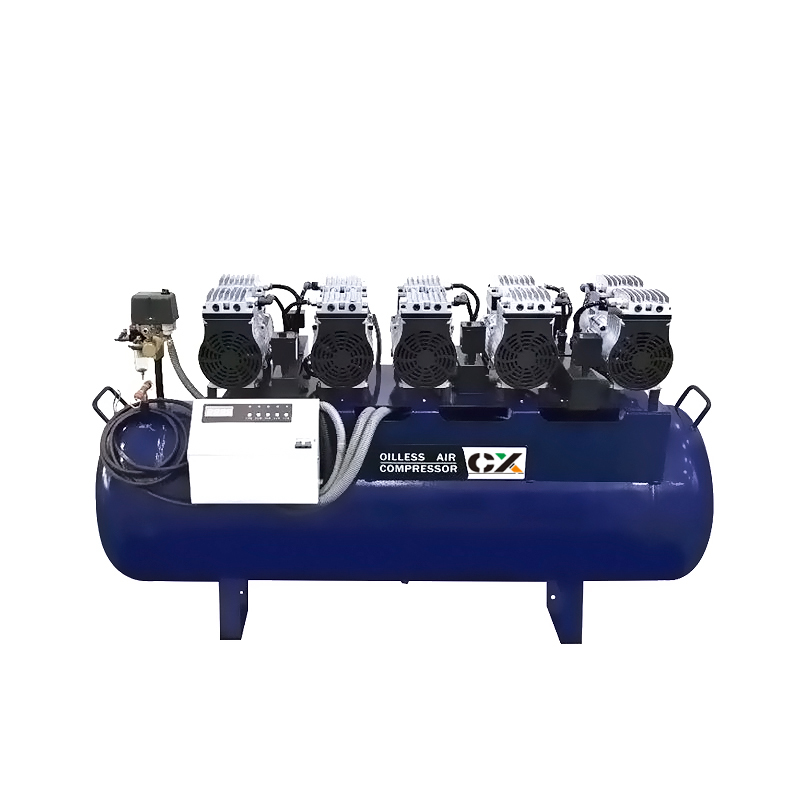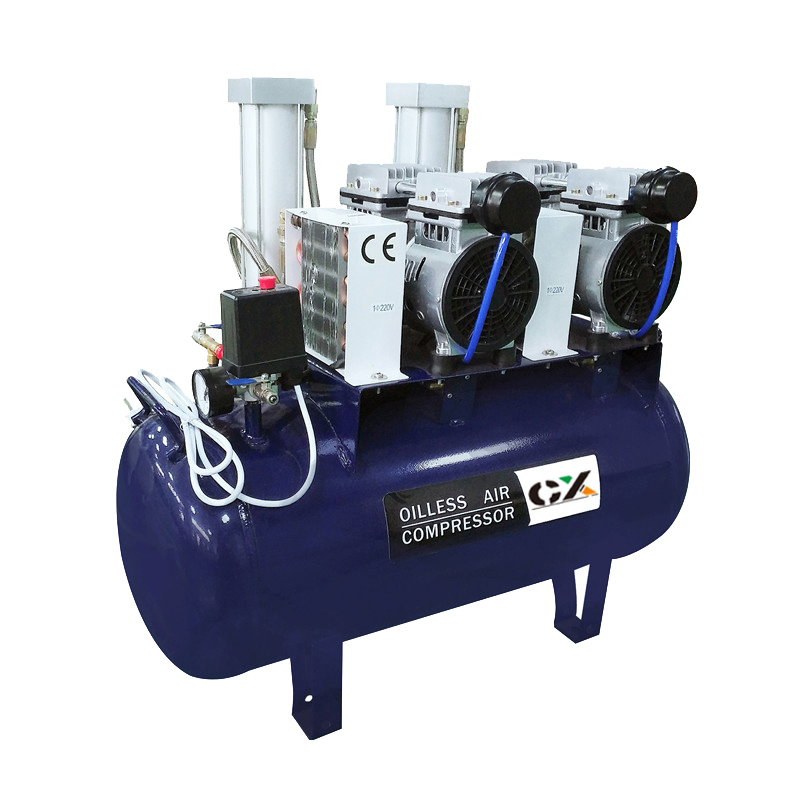Since its invention, dental compressors always served as the workhorses behind dental instruments, powering tools across diverse dental parts. Traditional compressors have long relied on oil lubrication to facilitate their operations.
However, the introduction of oil free air compressors has revolutionized this landscape, offering a range of advantages that propel efficiency, environmental sustainability, and cost-effectiveness.
Oil free air compressors, as the name suggests, operate without the need for lubricating oil in their compression chambers.
Unlike their oil-lubricated counterparts, oil free air compressors utilize alternative mechanisms, such as precision engineering, coatings, or water, to reduce friction and ensure smooth operation.
The absence of oil in the compression process leads to several distinct advantages, making them increasingly popular in various industries.

In this section, the author will list the main advantages of oil free air compressors to show you why many clinics love using oil free air compressors.
Oil free compressors eliminate the potential for oil contaminants to seep into the compressed air, ensuring a higher quality of air output. This clean, oil free air is vital for applications where air purity is crucial, such as pharmaceutical manufacturing, food processing, electronics, and healthcare.
By eliminating oil from the compression process, oil free air compressors significantly reduce the risk of oil leaks or spills, minimizing environmental impact. These systems align with stringent environmental regulations and contribute to sustainable practices in industrial operations.
Oil free compressors often require less maintenance compared to their oil-lubricated counterparts. Without the need for regular oil changes, filter replacements, or complex lubrication systems, these compressors reduce downtime and maintenance costs, boosting overall operational efficiency.
Industries requiring high-quality, uncontaminated air benefit greatly from oil free compressors. The absence of oil in the air stream ensures a purer output, preventing potential damage to sensitive equipment and maintaining product integrity in critical manufacturing processes.
Oil free compressors are designed with precision engineering to reduce internal friction. This optimization results in increased energy efficiency, allowing these systems to deliver higher performance while consuming less power compared to traditional compressors.

Silent Oil Free Air Compressor China
Industries governed by strict regulations, such as healthcare, food, and pharmaceuticals, often require adherence to specific air quality standards. Oil free compressors ensure compliance with these stringent regulations, providing peace of mind and meeting industry standards without compromise.
The lifespan of the oil free compressors is determined by the model and quality. The oil free air compressor can last about 10 to 15 on average. Before buying the oil free air compressor for your clinic, you had better consult the manufacturer about the lifespan of the machine.
There are various types of air compressors in the dental industry. You may wonder are oil free air compressors better. My answer is they are better on some occasions. They are inexpensive, lighter in weight, and produce as much air flow (CFM) & pressure (psi) as many oil-lubricated models. However, they may generate louder noise and are less durable.
Oil free air compressors represent a significant advancement in compressed air technology, offering a multitude of advantages across diverse industries. Their ability to provide clean, uncontaminated air, reduced maintenance requirements, enhanced energy efficiency, and compliance with industry standards positions them as indispensable assets in modern dental settings.